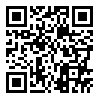BibTeX | RIS | EndNote | Medlars | ProCite | Reference Manager | RefWorks
Send citation to:
URL: http://frooyesh.ir/article-1-5944-en.html

 , Vahideh Jenadeleh *2
, Vahideh Jenadeleh *2 
 , Fatemeh Emami3
, Fatemeh Emami3 
 , Fatemeh Gharibian4
, Fatemeh Gharibian4 
 , Fatemeh Alkasir5
, Fatemeh Alkasir5 

2- Master of Family counseling, Ahvaz branch, Islamic Azad University, Ahvaz, Iran. ,
3- Master of Family Counseling, Faculty of Psychology and Educational Sciences, Al-Zahra University, Tehran, Iran.
4- Master's in family counseling, Faculty of Psychology and Educational Sciences, Shahid Chamran University of Ahvaz, Ahvaz, Iran.
5- PhD Student in Counseling, Faculty of Psychology and Educational Sciences, Shahid Chamran University of Ahvaz, Ahvaz, Iran.
The present study aimed to predict the distress tolerance of mothers with physically and motor disabled children based on guilt, self-compassion, and mindfulness. The research method was descriptive-correlational. The statistical population of the study was mothers with physically and motor disabled children who were referred to welfare centers in Ahvaz in 2023, with a total of 950 people. 265 people were selected as the research sample using the convenience sampling method. Data were collected using the Distress Tolerance Scale (DTS; Simons & Gaher, 2005), the Self-Conscious Affect Scale (TOSCA-2; Tangney & Tracy, 1989), the Self-Compassion Scale (SCS; Neff, 2003), and the Mindfulness Attention Awareness Scale (MAAS; Brown & Ryan, 2003). Data were analyzed using Pearson correlation and multiple regression in a simultaneous manner. The results showed that there is a negative and significant relationship between guilt and distress tolerance, and a positive and significant relationship between self-compassion and mindfulness with distress tolerance (p<0.01). The results indicated that guilt, self-compassion, and mindfulness can predict distress tolerance by 0.56. Based on these findings, it can be concluded that since physical and motor disabilities of children can affect distress tolerance in mothers, focusing on the psychological variables of guilt, self-compassion, and mindfulness in mothers can improve distress tolerance in this vulnerable group and increase the quality of the mother-child relationship.
Received: 2025/01/13 | Accepted: 2025/05/25 | ePublished: 2025/11/1
| Rights and permissions | |
 |
This work is licensed under a Creative Commons Attribution-NonCommercial 4.0 International License. |



